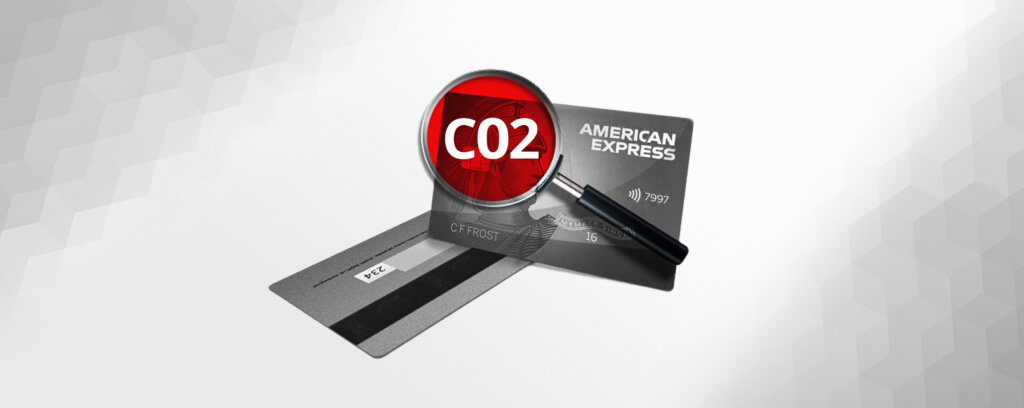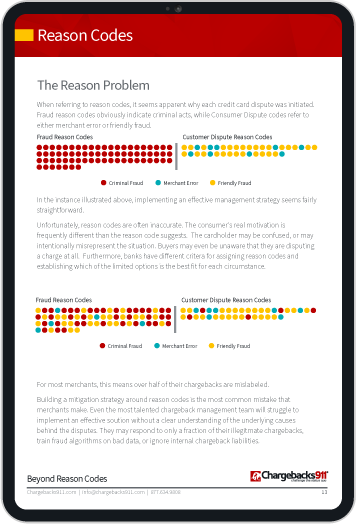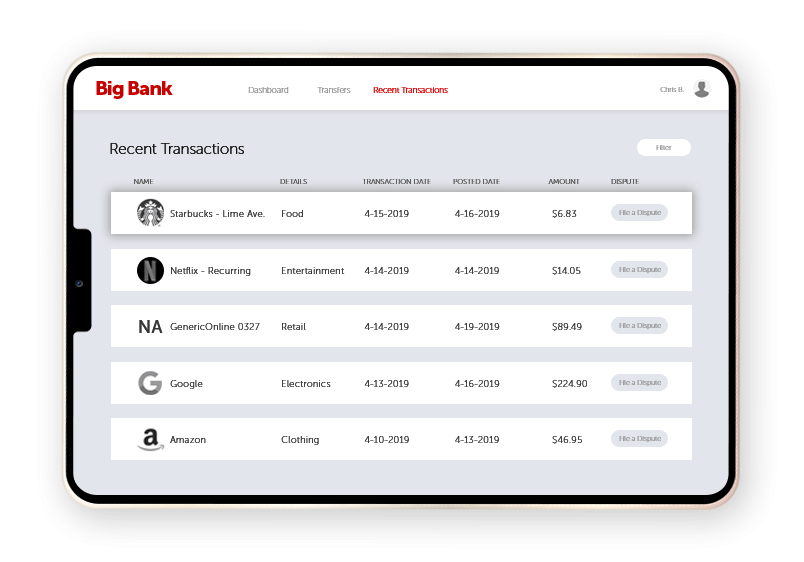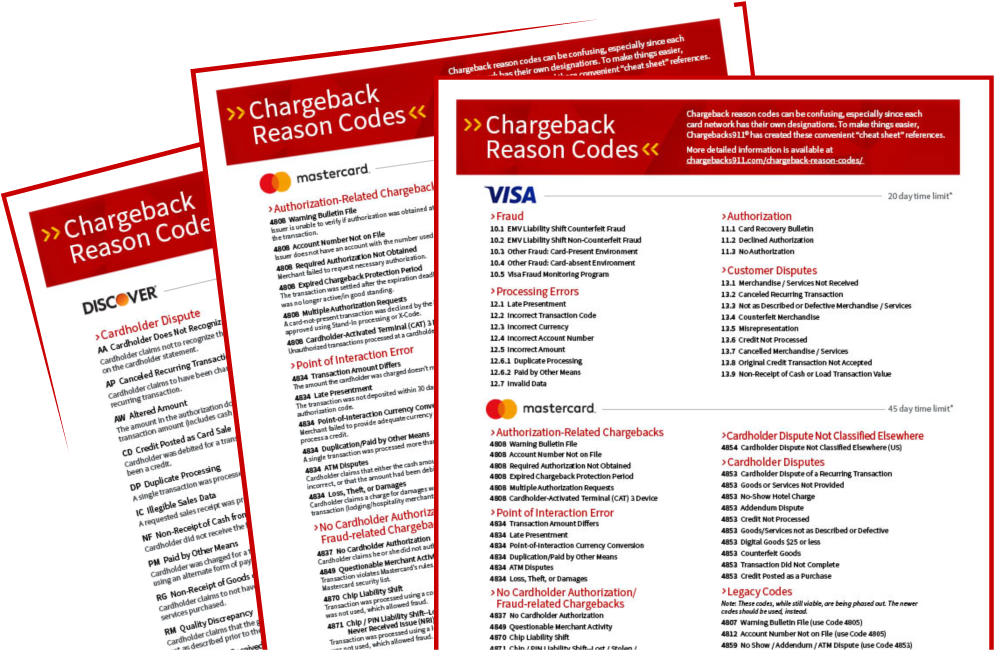
How to Handle Amex Reason Code C02 Chargebacks
American Express breaks down the acceptable causes for a customer to dispute a credit card transaction in their dispute guidelines. This is done for the sake of simplicity and standardization.
Each chargeback trigger has a designated “reason code.” Amex can then assign the appropriate code to each case to show the given reason for the chargeback.
Learn more about Amex reason codes
Today, we’re looking at one reason code in particular — C02 — and exploring the causes, timeframes, fees, and other specifics. We’ll also explore what you can do to prevent these chargebacks from happening.
Recommended reading
- What is Compelling Evidence? Examples & Tips to Win Disputes
- Credit Card Disputes | Step-by-Step Process Guide for 2025
- Mastercard Chargeback Time Limits: The 2025 Guide
- Chargebacks911® are Finalists for ‘Outstanding CX in Digital Sales Strategy’ for 2025!
- How to Detect Fraud: Top 20 Tips to Stop eCommerce Scams
- Verifi Order Insight: Using Data to Block Visa Disputes
What is American Express Reason Code C02?
American Express chargeback reason code C02 is “credit not processed.” This reason code is used to explain that, as a merchant, you were expected to apply a credit to a cardholder’s account, but Amex has not received the credit in question.
This would typically be issued in cases of refund requests. For instance, a buyer completed a transaction, then later decided to request a refund. As the merchant of record, you’d be expected to credit the buyer’s account. However, you failed to credit the buyer as expected.
This could also be the result of failing to credit the buyer within the timeframe expected. So, even if you did process a credit, you can still receive a reason code C02 chargeback if you took too long to do so.
What Caused This Dispute?
As mentioned above, Amex chargeback reason code C02 is primarily issued if you failed to issue an expected credit. To demonstrate, this scenario can arise if:
- The buyer requested a refund, but no refund was processed.
- You processed a refund as requested, but did not do so in a timely manner.
- You received an inquiry notification, and responded, affirming that you intended to credit the buyer. But, the credit was never processed.

How to Respond to Amex Reason Code C02 Chargebacks
So, what happens if you can prove that you did, in fact, provide a credit in response to an inquiry?
Naturally, if you receive an Amex C02 chargeback, you’ll want to resolve the issue right away. If you feel that the chargeback was filed in error, you should file a dispute response. This is done through a process called representment.
Representment is the process through which you’ll challenge a chargeback. You provide evidence to the card issuer (in this case, American Express) that all aspects of the transaction were legitimate and in accordance with the card issuer's policies. This can involve several key pieces of evidence.
Also, remember that there’s a strict time limit to consider. You have just 20 days in which to submit your response to American Express. However, this time frame also includes the time it took for your acquirer to provide you with a dispute notification, as well as time spent by the acquirer reviewing and submitting your case. In practical terms, you’ll often have five days or less in which to prepare and submit your response.
Acceptable Evidence for Amex Reason Code C02 Responses
You can re-represent these charges under the condition that you have compelling evidence.
For American Express reason code C02 chargebacks, you’ll need to provide proof that you did, in fact, process the credit which the buyer requested. Or, if you already issued a credit to the buyer as a way of trying to avoid the dispute. In this case, you’ll need to offer proof that you already provided a credit to offset the amount charged.
Alternatively, you might insist that no credit was actually due to the buyer. If this is the case, you’ll need to provide proof that the buyer was not entitled to a credit. In this case, you need to look at the claim made by the cardholder, and then provide sufficient evidence explaining that the claim is not true, and that a credit is not justified. Documentation may include:
- Transcripts of conversations between yourself and the cardholder
- Shipping and/or tracking information
- Screen caps of product pages and descriptions
The success of representment depends on the thoroughness and relevance of the evidence provided. Maintaining detailed records of transactions and communications with customers is vital to effectively counteract all chargebacks, including those under reason code C02.
How to Prevent Amex Reason Code C02 Chargebacks
As the old adage goes, “an ounce of prevention is worth a pound of cure.”
You may never be able to stop chargebacks entirely. But, you can limit your exposure to risk and keep your chargeback ratio in good standing by adopting a few best practices. Generally speaking, you’ll want to:
Take a Wider View
You can dispute invalid chargebacks from Amex reason code C02. However, it’s much more efficient to take a proactive stance. The same is true of the other chargeback reason codes, as well. A truly effective chargeback management strategy must encompass prevention as well as disputing cases of friendly fraud.
Chargebacks911® can help your business manage all aspects of chargeback reason codes, with proprietary technologies and experience-based expertise. Contact us today for a free ROI analysis to learn how much more you could save.
FAQs
Does Amex investigate chargebacks?
Yes. American Express investigates chargebacks by reviewing the evidence provided by both the merchant and the cardholder to determine the legitimacy of the transaction and decide on the chargeback claim. This process ensures a fair resolution based on the documentation and arguments presented by both parties.
What is the reason code for a chargeback on American Express card?
An American Express chargeback reason code is a code that identifies the specific reason a cardholder or issuing bank has disputed a transaction, guiding the merchant on the nature of the dispute and what evidence may be required to contest it. Each code corresponds to a particular issue, such as unauthorized use, processing errors, or non-receipt of goods or services. Click here to see a full list of Amex reason codes.
Do police investigate chargebacks?
Police typically do not investigate chargebacks as they are considered a dispute between the merchant and the cardholder, handled through the card issuer's internal processes. However, if fraud is suspected as the cause of a chargeback, law enforcement may be involved in investigating the fraudulent activities.
How successful are Amex disputes?
The success of an American Express dispute depends on the merchant's ability to provide compelling evidence that the transaction was valid and in accordance with Amex policies. Success rates vary widely based on the nature of the dispute and the quality of the documentation provided by the merchant.
How does American Express investigate disputes?
American Express investigates disputes by reviewing documentation and evidence provided by both the cardholder and the merchant, such as transaction receipts, proof of delivery, or communication records, to determine the validity of the chargeback claim. This process aims to ensure a fair resolution based on the facts presented by both parties.










